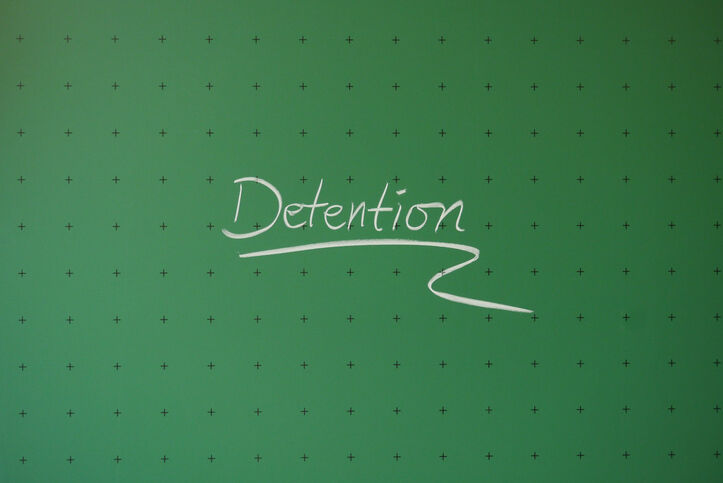The Tucson Unified School District Governing Board voted unanimously to change the Student Code of Conduct, saying the move will improve security and provide a better educational experience.
"I hope I speak for all of the governing board members as well as on behalf of the district in saying that we are not a district that tolerates perpetuating the school-to-prison pipeline," said Board President Ravi Shah. "But we are a district that wants to hold our students properly accountable for their behavior while employing evidence-based restorative practice and that wants to ensure that our campuses are safe and have environments conducive to our students learning."
The vote Tuesday night came after parents and teachers during the meeting's call to the audience implored the board to focus on safety in classrooms and on campuses.
TUSD Superintendent Gabriel Trujillo stressed the importance of providing a learning environment where teachers can focus on teaching rather than discipline or security monitoring.
"This is about a better TUSD for all, a better quality of life for our employees and our students and our parents," he said. TUSD serves about 47,000 students at about 90 schools and programs.
District officials said the revised code of conduct aims to restore authority and respect to principals and teachers, enabling them to maintain safe classrooms without assuming the primary responsibility for interventions and de-escalation efforts.
School administrators and other professional staff will have the onus of doling out discipline, Shah said.
Interventions after poor choices
"We're going to really rely on our administrators at our sites, so our principals and assistant principals and other leaders on our sites, to review the violations and manage those with the students," the board president said.
Trujillo acknowledged an existing emphasis on "restorative justice" practices, such as parent-teacher conferences and interventions, and assured stakeholders the revised code maintains those components. Restorative justice focuses on rehabilitation of offenders through reconciliation with victims and the community at large.
The changes are intended to strike a balance and provide support to teachers while ensuring students receive the necessary interventions and support when making poor decisions, Trujillo said.
The district director for student relations, Anna Warmbrand, presented the recommended revisions to the board, with the main change being a split of the code into three tiers: high school, middle school and elementary school.
The revised code outlines consequences for various offenses, allowing flexibility and discretion for principals in decision-making.
It lays out violation levels, with Level 1 violation being the least serious offences to Level 5 being the most, along with prescribed escalating levels of consequences.
There are also guidelines included for if and when law enforcement should be consulted or called.
Warmbrand highlighted specific changes for offenses such as provocation, fighting, tobacco and alcohol violations, illicit drugs, attendance policy violations, defiance or disrespect towards authority, audiovisual recording and photographs without prior consent, trespassing, graffiti, tagging, sexual offenses, threats, and intimidation.
She said TUSD's Title IX coordinator will collaborate with other officials to address levels three, four and five sexual offenses, the most serious levels. Title IX protects people from discrimination based on sex in education programs or activities that receive federal financial assistance.
Clean slates
The revisions also consider "grade bands," with a "band" being either elementary, middle school or high school.
"So if an elementary student has a level one offense at the beginning of their third grade year and they have the same violation offense in the spring of that third grade year, that is the second offense," Warmbrand explained. "If they have another violation their fourth grade year, that would be their third offense. However, if they have that same violation when they begin middle school with us, then they will start anew."
The change is to help ensure students start anew with a clean slate when transitioning to a new "band."
Warmbrand also discussed the inclusion of alternative education options for students who commit level four and five offenses to ensure continued engagement in the educational process while maintaining campus safety.
"Bringing an armed gun to campus, for example, that's a level five intervention," Shah said.
Warmbrand, like Trujillo, emphasized inclusion in the code of restorative consequences such as community service, which would be supported and facilitated by the district's Department of Student Relations.
The revisions incorporated feedback from the governing board, particularly regarding parking privileges and passes, Warmbrand said.
"We did work with legal counsel to get our language as best as we could to make sure that our site administrators are following those pieces and parts so student parking privileges shall be given only to those students with a permit issued by the school," she said.
Superintendent Gabriel Trujillo of the Tucson Unified School District talks about the importance of students receiving rich educational experiences, rather than solely focusing on testing. Video courtesy of TUSD.





